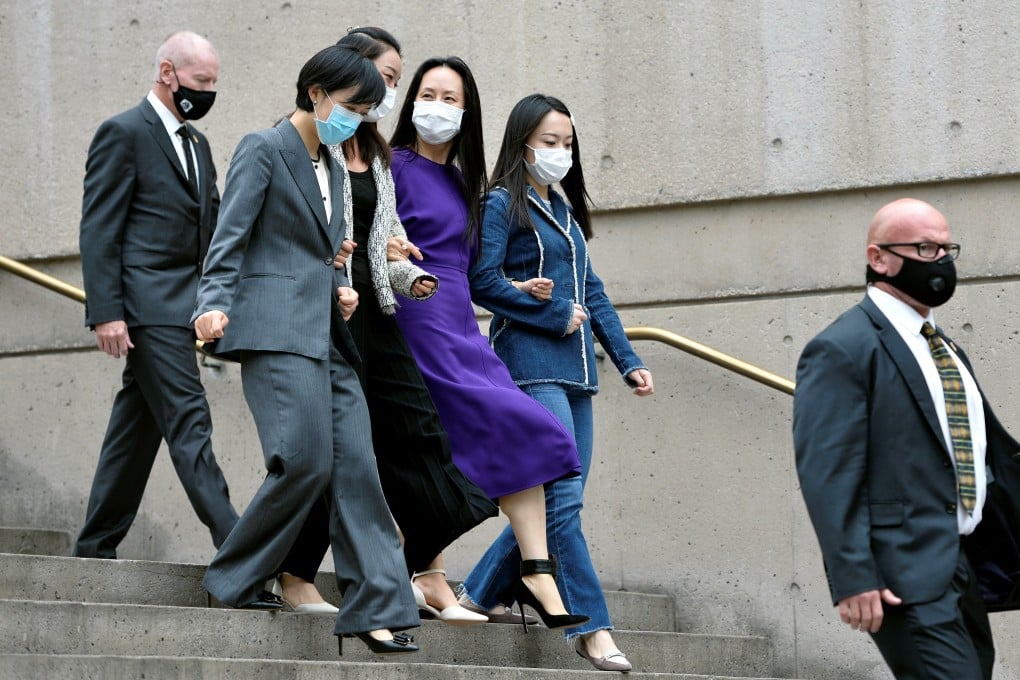Advertisement
Meng Wanzhou’s Canadian extradition hearings are over, almost 1,000 days after airport arrest
- A ruling on whether to free the Huawei executive or allow her to be sent to the US for trial will take months to deliver
- The judge is only allowed to consider inferences about evidence that support extradition, Canadian government lawyers say on the final day of hearings
Reading Time:5 minutes
Why you can trust SCMP
99+

Meng Wanzhou first walked into a Canadian courtroom on December 5, 2018, an anonymous figure dressed in a dark green prison tracksuit.
Four days earlier, the Huawei Technologies’ executive had been arrested at Vancouver International Airport, setting in motion a chain of events that would throw China’s relations with Canada and the United States into crisis.
Her battle to avoid extradition to New York, to face trial for fraud, would become a distillation of the tectonic shifts and tensions in global geopolitics. Events in the Supreme Court of British Columbia in Vancouver would reverberate from Beijing to Washington and Ottawa.
Advertisement
On Wednesday, almost 1,000 days after her arrest on a stopover from Hong Kong to Mexico, Meng’s extradition hearings finally concluded.
But although the marathon hearing process is over, a decision by the judge whether to free Meng or recommend to Canada’s Minister of Justice David Lametti that she be sent for trial for fraud in New York will take months to deliver.
Advertisement
The committal hearings in the Supreme Court of British Columbia wrapped up two days earlier than expected.
Advertisement
Select Voice
Choose your listening speed
Get through articles 2x faster
1.25x
250 WPM
Slow
Average
Fast
1.25x